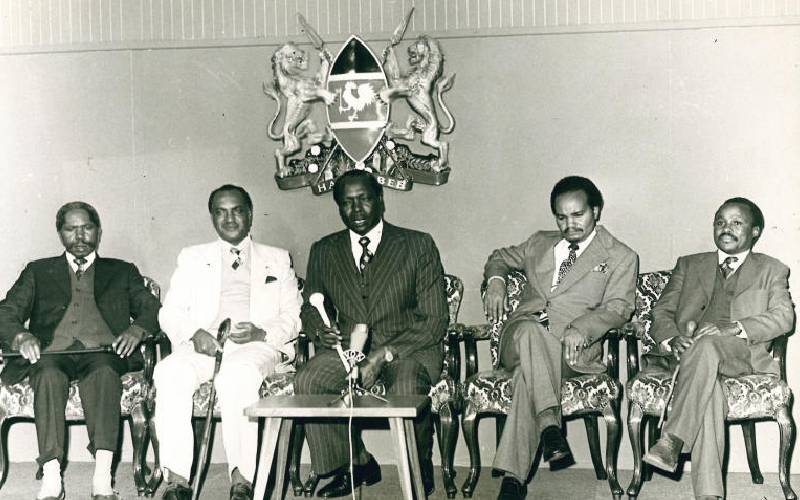×
The Standard e-Paper
Home To Bold Columnists

Daniel arap Moi, Jeremiah Nyaga, GG kariuki, Justus ole Tiipis and Taaitta Towett. [File, Standard]
Contrary to popular belief, not all politicians are sent into retirement through rejection at the ballot. Some opt to walk away at the zenith of their careers.